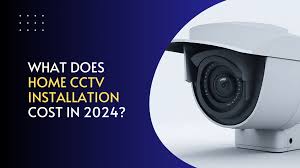
Introduction
Installing a CCTV system is a crucial step towards enhancing security, whether for residential or commercial purposes. However, understanding the costs involved can be complex, as several factors come into play. This article breaks down the various components and considerations of CCTV installation costs, helping you make informed decisions without breaking the bank.
1. Initial Costs of CCTV Systems
1.1 Types of CCTV Cameras
The type of CCTV camera you choose significantly impacts the overall cost. Common options include:
- Bullet Cameras: Ideal for outdoor use, these cameras are durable and cost-effective, generally priced between $50 and $150 each.
- Dome Cameras: Best for indoor surveillance, dome cameras are sleek and less noticeable, costing between $60 and $200 each.
- PTZ Cameras: These cameras offer pan, tilt, and zoom functions, making them versatile but more expensive, with prices ranging from $200 to $500 each.
1.2 Number of Cameras
The number of cameras required is a major cost factor. More extensive coverage requires more cameras, which increases the overall expense. Generally, a basic setup with a few cameras may cost around $500 to $1,000, while a comprehensive system for larger properties can range from $2,000 to $5,000 or more.
2. Additional Equipment Costs
2.1 DVR/NVR Systems
A Digital Video Recorder (DVR) or Network Video Recorder (NVR) is essential for recording and storing footage. DVRs are typically used with analog systems, while NVRs are used with IP cameras. Costs for these systems range from $150 to $1,000, depending on the number of channels and storage capacity.
2.2 Storage Solutions
Storage solutions are crucial for saving recorded footage. Hard drives or cloud storage services are common options:
- Hard Drives: A high-capacity hard drive suitable for CCTV footage can cost between $100 and $300.
- Cloud Storage: Monthly subscriptions for cloud storage range from $10 to $50, depending on the storage size and service provider.
2.3 Accessories
Additional accessories such as cables, mounts, and power supplies are necessary for CCTV installation. The cost for these items can add up to $100 to $300, depending on the complexity and length of cables required.
3. Installation Costs
3.1 Professional Installation
Hiring a professional installer ensures that the system is set up correctly and efficiently. Professional installation typically costs between $200 and $500, depending on the complexity of the setup and the number of cameras.
3.2 DIY Installation
For those who prefer a more budget-friendly option, DIY installation is possible. However, this may involve additional time and effort, as well as potential troubleshooting costs if mistakes are made. The cost for DIY installation is limited to equipment and accessories, but you may need to invest in tools or additional support resources.
4. Maintenance and Operational Costs
4.1 Regular Maintenance
Maintaining your CCTV system involves periodic checks, cleaning, and updates. Maintenance costs are usually minimal, around $100 to $200 annually, but it’s crucial for ensuring the system’s longevity and effectiveness.
4.2 Power Consumption
CCTV cameras consume electricity, though the cost is generally low. The energy consumption depends on the number of cameras and their power requirements. Expect to spend an additional $5 to $15 per month on electricity for a typical system.
5. Upgrades and Additional Features
5.1 Upgrading Camera Quality
Higher-resolution cameras, such as 4K or HD, offer better image quality but come at a higher cost. Upgrading to these cameras can add $200 to $500 per camera to the overall cost of your system.
5.2 Advanced Features
Advanced features like motion detection, night vision, and remote access can enhance the functionality of your CCTV system. These features may be included in higher-end models or require additional investment, ranging from $100 to $500 depending on the specific feature.
6. Comparing Costs and Options
6.1 Budget Considerations
When planning your CCTV installation, it’s essential to establish a budget that aligns with your security needs and financial capabilities. A basic system with standard cameras and minimal features may cost around $1,000 to $2,000, while a high-end system with advanced features and extensive coverage can exceed $5,000.
6.2 Cost vs. Value
Weigh the costs against the value provided by the CCTV system. Investing in a high-quality system with reliable performance and advanced features can offer better long-term benefits, including enhanced security and reduced risk of crime.
7. Financial Planning and Options
7.1 Financing Options
Some companies offer financing options for CCTV systems, allowing you to spread the cost over time. Explore financing plans to determine if they fit your budget and needs.
7.2 Tax Benefits
In certain regions, you may be eligible for tax benefits or incentives for installing security systems. Check local regulations and consult with a tax advisor to understand potential savings.
8. Conclusion
Understanding the costs involved in CCTV installation is crucial for making informed decisions about securing your property. From initial equipment and installation expenses to ongoing maintenance and upgrades, careful budgeting and planning can help you achieve a cost-effective and efficient security solution. By considering your needs and exploring various options, you can ensure that your CCTV system provides the maximum value and protection for your investment.







